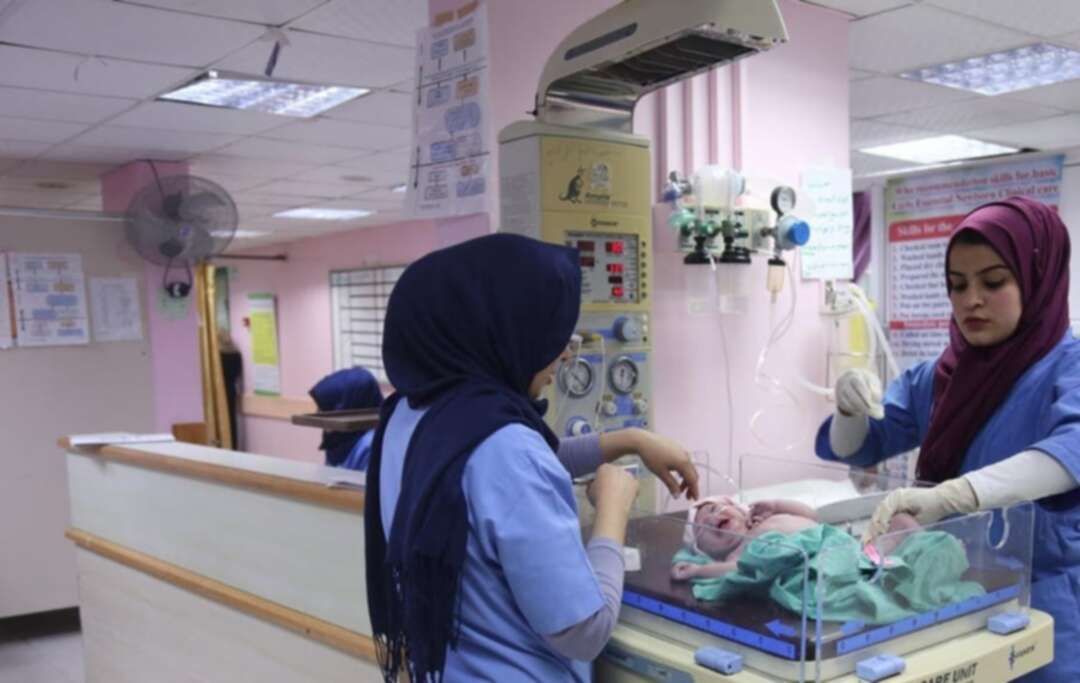-
WHO sounds alarm on global midwife shortage, UAE experts urge more to consider career

Medical experts in the United Arab Emirates say there is an urgent need for more people in the region to consider becoming midwives, amid a new report by the World Health Organization which has sounded an alarm over a global shortage of those in the profession.
As the International Day of the Midwife (IDM) is marked on Wednesday, the WHO has highlighted what they say is their essential role in providing care to pregnant women.
However, it said there are too few women considering midwifery as a career. According to a new report by the heath body, millions of lives of women and newborns are lost, globally and millions more experience ill health or injury, because the needs of pregnant women and skills of midwives are not recognized or prioritized.
The world is currently facing an international shortage of 900,000 midwives, which represents a third of the required global midwifery workforce. The COVID-19 crisis has only exacerbated these problems, with the health needs of women and newborns being overshadowed, midwifery services being disrupted and midwives being deployed to other health services.
In the UAE, Sumaia Salameh, director of nursing at Sharjah’s Burjeel Specialty Hospital, told Al Arabiya English the shortage of midwifes globally is echoed in the Emirates.
“As the WHO report suggests, there is an international shortage of trained midwives and the condition is the same in the UAE as well,” she said. “The services of a midwife bring additional value to the labor department in a hospital yet there is too few numbers of trained midwives.”
The nursing director said this is down to many reasons, including a lack of regional knowledge and understanding about the role of midwives.
 As the International Day of the Midwife (IDM) day is marked on Wednesday, the WHO has highlighted what they say is their essential role in providing care to pregnant women. (Stick image)
As the International Day of the Midwife (IDM) day is marked on Wednesday, the WHO has highlighted what they say is their essential role in providing care to pregnant women. (Stick image)Firstly, a large number of countries do not offer courses on midwifery,” she said. “Generally, a nurse performs the role of a midwife in hospitals.”
“Secondly, there is a misconception that a midwife is of less importance than a nurse. It is a myth. There is a lack of awareness about the role and importance of midwives in hospitals.”
Midwives are trained professionals in assisting women in labor, however, their role is “much more”, said Salameh.
“Midwives are trained to assist women throughout their pregnancy. They can help pregnant women with pre and postnatal checkups and care. Midwives can also assist women with exercises during pregnancy and post-delivery.”
“However, due to the shortage of midwives, hospitals generally rely on trained nurses to perform these responsibilities,” Salameh explained.
Regionally, more must be done to promote midwifery as a professional career, she said.
“Many countries do not offer a course on midwifery. Medical institutions should consider starting courses that would produce trained midwives. Also, awareness needs to be created to encourage more people to opt for midwifery as a career option.”
“Countries should also consider giving midwifery license to nurses who have long experience in labor delivery and able to perform similar responsibilities.”
Dr Kamlesh Mishra, a specialist in obstetrics and gynecology at the UAE’s Bareen International Hospital, told Al Arabiya English that the figures released in the WHO report were “alarming” and said COVID-19 would further exacerbate the situation as many midwives have been deployed to other health services.
“This going to affect maternity services and safe childbirth and maternal health untowardly,” she said. “Maternal mortality and morbidity and neonatal morbidity and mortality are directly related to percentage of births attended by skilled and trained healthcare professionals.
“As female doctors are also choosing other specialties of medical stream, not only obstetrics as their career. To remedy the situation, strategic intervention is needed.”
"A point to ponder is why nursing staffs are less attracted towards an extremely noble profession of midwifery, which is associated with positive vibe and delight of assisting mothers to give birth to a new life, a bundle of joy to the family and community."
Proper job description, assigning more autonomy and allowing for more decision-making powers, ensuring healthy and respectful mutual relationship in the workplace, providing attractive compensation and benefits, and supporting education and training can attract more women to join midwifery workforce across the globe, said the doctor.
According to the WH0, the acute shortage of midwives is exacting a terrible global toll in the form of preventable deaths.
An analysis conducted for a report by the heath body, published in the Lancet last December, showed that fully resourcing midwife-delivered care by 2035 could avert 67 percent of maternal deaths, 64 percent of newborn deaths and 65 percent of stillbirths. It could save an estimated 4.3 million lives per year.
The WHO said gender inequality is an unacknowledged driver in this massive shortage. The continued under-resourcing of the midwifery workforce is a symptom of health systems not prioritizing the sexual and reproductive health needs of women and girls, and not recognizing the role of midwives – most of whom are women – to meet these needs. Women account for 93 per cent of midwives and 89 per cent of nurses.
As well as assisting with births, midwives have a range of other medical responsibilities including providing antenatal and postnatal, assisting with family planning, and upholding women’s rights.
Dr Franka Cadée, president of the International Confederation of Midwives, said: “As autonomous, primary care providers, midwives are continually overlooked and ignored.”
“It’s time for governments to acknowledge the evidence surrounding the life-promoting, life-saving impact of midwife-led care.”
D. Tedros Adhanom Ghebreyesus, the director-general of WHO, said that while midwives play a vital role in reducing the risks of childbirth for women all over the world, many have themselves been exposed to risk during the COVID-19 pandemic.
“We must learn the lessons the pandemic is teaching us, by implementing policies and making investments that deliver better support and protection for midwives and other health workers and support WHO’s longstanding call to strengthen the midwifery workforce, which will deliver a triple dividend in contributing to better health, gender equality and inclusive economic growth,” Ghebreyesus said.
source: Jennifer Bell
Image source: Reuters
Levant
You May Also Like
Popular Posts
Caricature
BENEFIT Sponsors BuildHer...
- April 23, 2025
BENEFIT, the Kingdom’s innovator and leading company in Fintech and electronic financial transactions service, has sponsored the BuildHer CityHack 2025 Hackathon, a two-day event spearheaded by the College of Engineering and Technology at the Royal University for Women (RUW).
Aimed at secondary school students, the event brought together a distinguished group of academic professionals and technology experts to mentor and inspire young participants.
More than 100 high school students from across the Kingdom of Bahrain took part in the hackathon, which featured an intensive programme of training workshops and hands-on sessions. These activities were tailored to enhance participants’ critical thinking, collaborative problem-solving, and team-building capabilities, while also encouraging the development of practical and sustainable solutions to contemporary challenges using modern technological tools.
BENEFIT’s Chief Executive Mr. Abdulwahed AlJanahi, commented: “Our support for this educational hackathon reflects our long-term strategic vision to nurture the talents of emerging national youth and empower the next generation of accomplished female leaders in technology. By fostering creativity and innovation, we aim to contribute meaningfully to Bahrain’s comprehensive development goals and align with the aspirations outlined in the Kingdom’s Vision 2030—an ambition in which BENEFIT plays a central role.”
Professor Riyadh Yousif Hamzah, President of the Royal University for Women, commented: “This initiative reflects our commitment to advancing women in STEM fields. We're cultivating a generation of creative, solution-driven female leaders who will drive national development. Our partnership with BENEFIT exemplifies the powerful synergy between academia and private sector in supporting educational innovation.”
Hanan Abdulla Hasan, Senior Manager, PR & Communication at BENEFIT, said: “We are honoured to collaborate with RUW in supporting this remarkable technology-focused event. It highlights our commitment to social responsibility, and our ongoing efforts to enhance the digital and innovation capabilities of young Bahraini women and foster their ability to harness technological tools in the service of a smarter, more sustainable future.”
For his part, Dr. Humam ElAgha, Acting Dean of the College of Engineering and Technology at the University, said: “BuildHer CityHack 2025 embodies our hands-on approach to education. By tackling real-world problems through creative thinking and sustainable solutions, we're preparing women to thrive in the knowledge economy – a cornerstone of the University's vision.”
opinion
Report
ads
Newsletter
Subscribe to our mailing list to get the new updates!






















